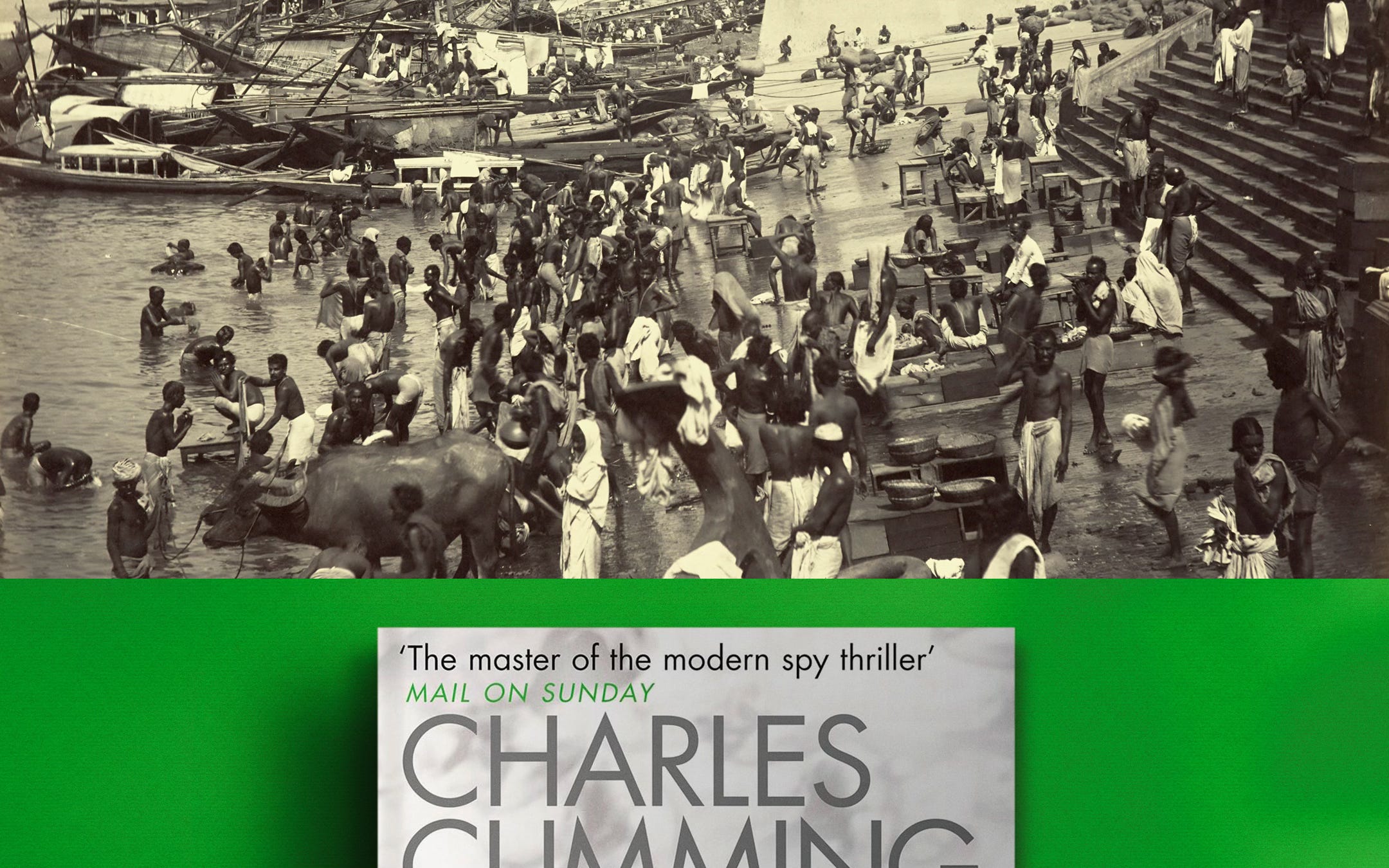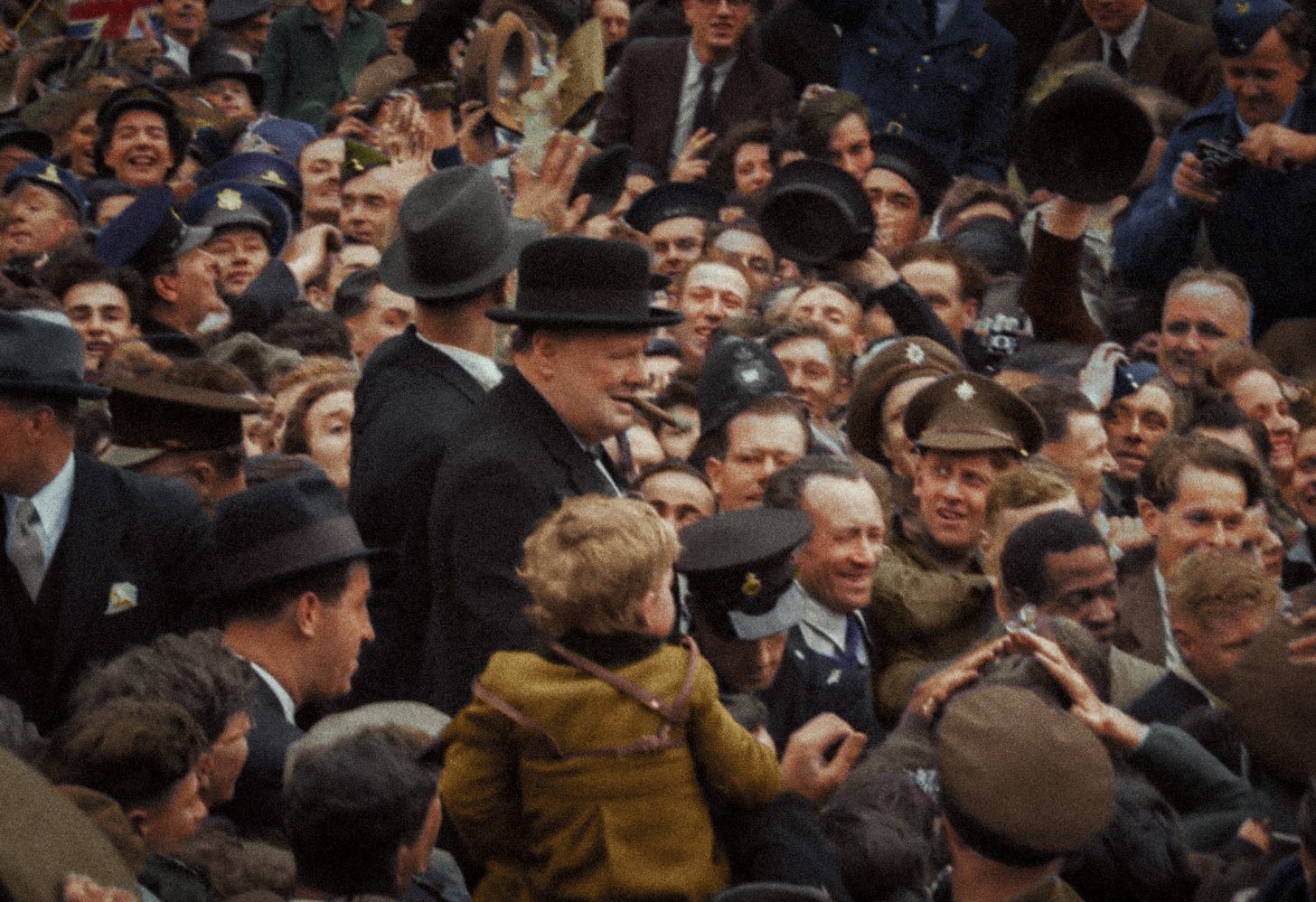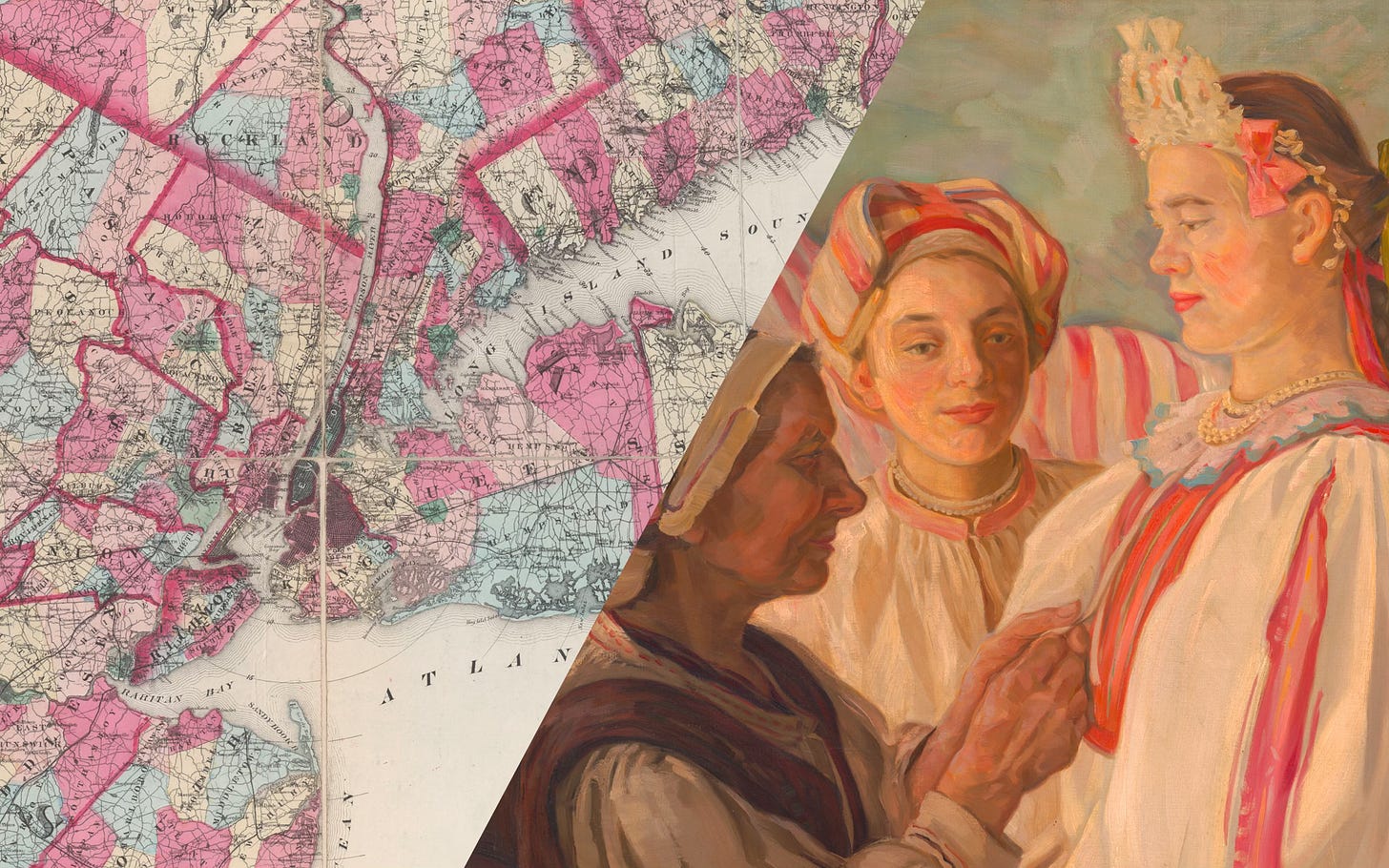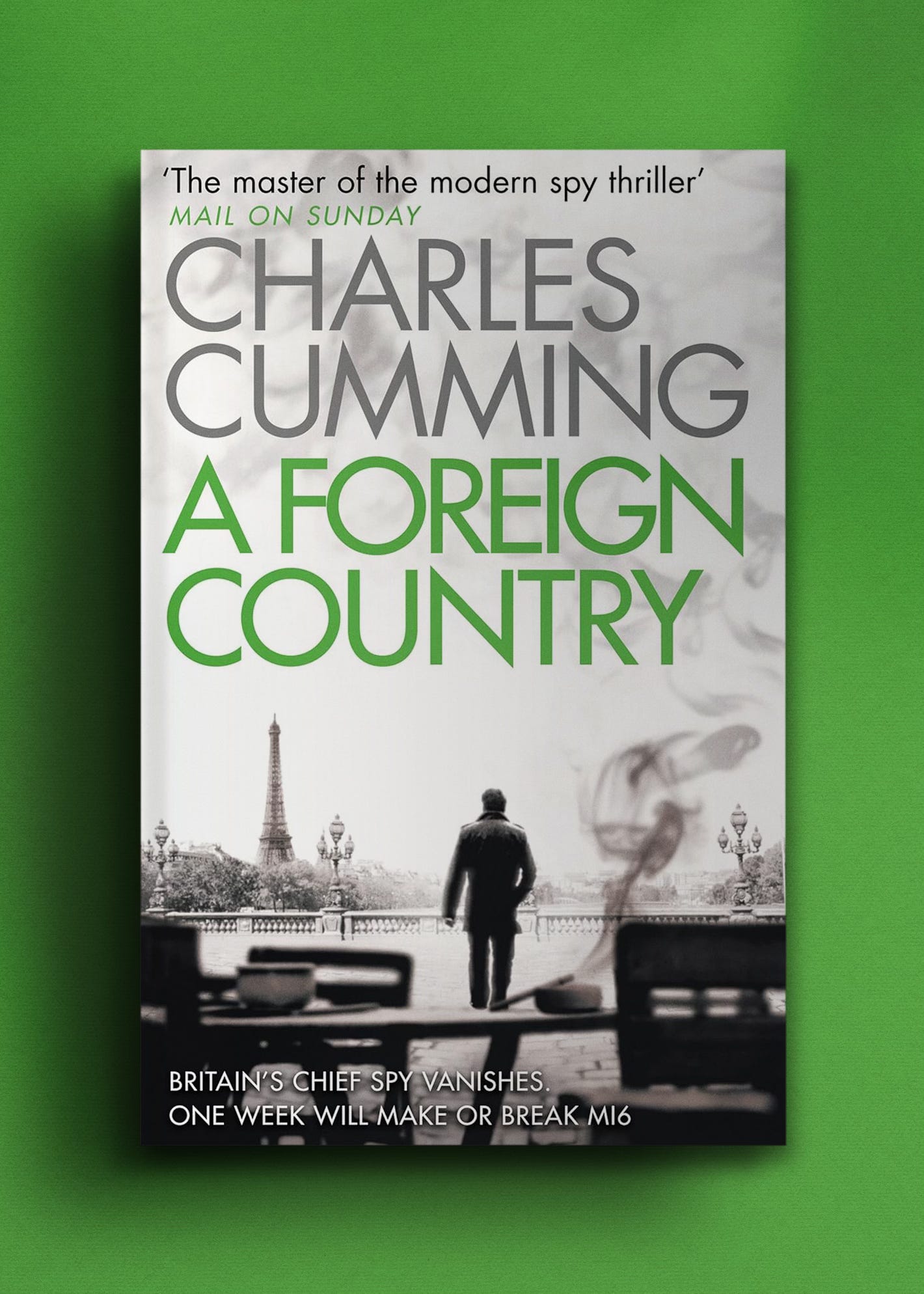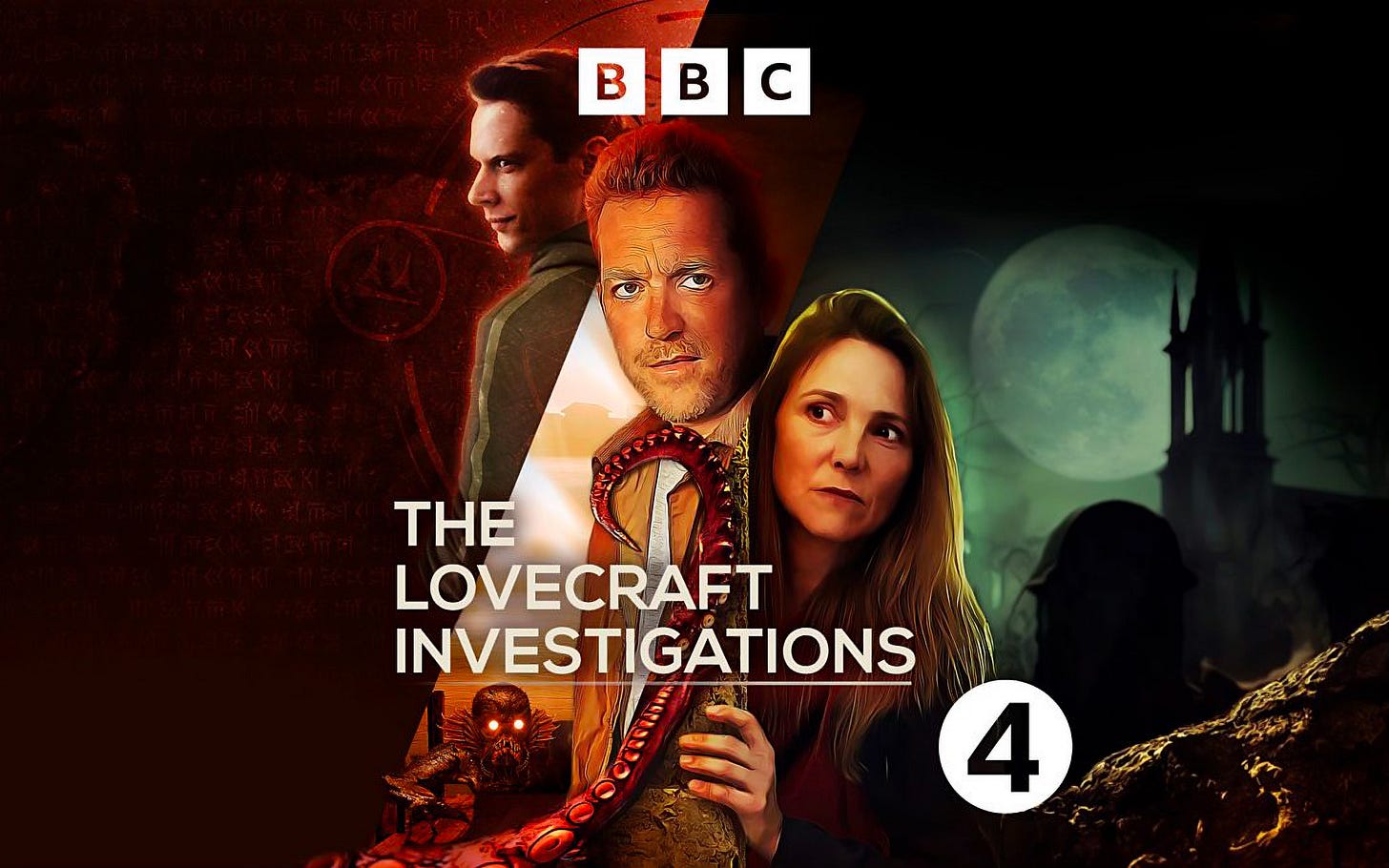The Dispatch #7 – On Writing a First Chapter
June 2025's monthly update from Jordan Acosta, a British speculative fiction writer.
About Me
I'm a British 40-something speculative fiction writer, professional designer and creative director based near London. Over the last five years, I’ve worked on drafting my debut novel, Dark Century. The Dispatch is my monthly newsletter, published on the first Thursday of the month.
Format
Topics are broken down into:
CABLE – News & Events;
MINUTES – On Writing & Publishing;
VETTING – The Month's Reviews;
POSTINGS – Elsewhere, On/Off-line;
INTERCEPT – Quote of the Month
CABLE –
News & Events
The Times VE Day Coverage
It’s a pleasure and a privilege to work on another project with The Times and the folks at the NewsUK Archive. This time, some restored and colorized photographs for the 80th anniversary of VE Day in Europe. You can check out The Times’ full coverage with all the photographs over on their website👇
Collaboration: VE Day as it happened: how the European war ended in real time
Unseen Histories, Now on Substack
I believe Substack will emerge as a viable long term platform for readers interested in reading (as opposed to scrolling), and to that end I’ve begun migrating my work’s back catalogue straight onto Substack, in addition to our monthly roundup (also called the Dispatch, somewhat confusingly – it wasn’t my idea!).
Case in point – by the time you read this, Part 1 of our very special feature telling the story of D-Day by 19 historians in 44 photographs will be published.
With the internet increasingly filled with generative AI and bot activity, publications like Unseen Histories, now more than ever need a receptive audience who can engage with human-written, factually based historical features.
If long-form features and interviews with the world’s leading historians appeals to you, alongside previews and excerpts from upcoming history books, please do consider subscribing.
More Free-to-use Picture Resources for Writers
My Free-to-use Picture Resources for Writers post got a lot of traction last month, and I’m very grateful to everyone who read, commented and shared the piece. I also received enough recommendations to do a follow up Commonplace post with ten more.
Click below for access 👇
More Free-to-use Picture Resources for Writers
MINUTES –
On Writing & Publishing
Writing a First Chapter
After spending the best part of five years writing book #1 (currently on submission to editors), the prospect of beginning book #2 was predictably daunting. As I wrote in last month’s edition, I put together two separate pitches for what to work on next, a decision now justified by comments made by editors who passed on book #1, but were interested in the historical horror.
May’s writing time was spent expanding a paragraph into a 3k+ chapter. I’m a slow writer, not least because I want the sentences to flow when read aloud, which means I tend to rework and reword several times over. I want to convey a sense of tone and pacing that’s recognisably mine, and it takes a few goes to get it right.
Given the premise of the pitch, I’ve also been grappling with real historical documentation, on everything from pre-decimal currency and inflation rates, to poring over old maps, encyclopaedias, and academic papers to give me a better sense of the place and period.
When outlining something new, I have goals for each chapter, usually expressed as three bullet points. In this opening chapter, I aim to:
Transport the reader to Kolkata, 170 years ago;
Introduce the main character;
Foreshadow a means for him to escape a high-stakes situation later on in the book
Now, I’m going to share my opening two paragraphs with footnotes to the actual historical references I used, which you can read at the bottom of this post. Two caveats here: first, this opener may be substantially changed, or even eliminated in the next draft. Second, the spellings of places, names and attitudes reflect the period and the characters.
Let’s dig in:
It was early March. The dusty squalls preceding the summer monsoons1 compelled the city’s residents to occupy the stone ghauts2 along the edge of the Hoogly, from Garden Reach north to Baugbazar3. A melting pot of Mahometans, Moguls, Hindoos, Chinese, Jews, Parsees and Armenians4 flocked to the stepped river bank to frolic, bathe, or burn their dead5; observed from afar by Cashmere-shawled ladies and their attendant ayahs6.
Indoors, the morning light speared into Spence’s7 handsome lobby where George Frinton sprawled on a teak settee, studying the front page of the Bengal Herald8 with the haughty air of an Empire-man who mixed with lesser subjects, only in order that he might exploit them. He may have been taken for a gentleman, attired in a tailored cream serge three-piece9. Bright-eyed and clean shaven, but for a well-oiled moustache10; only the long-faded scars on his bronzed, callused hands belied a career spent outdoors across the breadth of the subcontinent.
There’s a temptation to insert the horror element straight away, but the story is shaped by the geopolitics of the era, and the madness needs a baseline to descend into.
With ten references in just two paragraphs, you can imagine how many more inhabit the rest of the chapter (and the novel…). You may think this overkill, but I’m aiming for historical authenticity and immersion, letting my story fall through the cracks of what has been recorded and documented.
If there was any vindication to this ponderous, methodical approach, it’s this photograph I came across a fortnight after I wrote the opening paragraph, taken within a few years of when I’ve set the story:
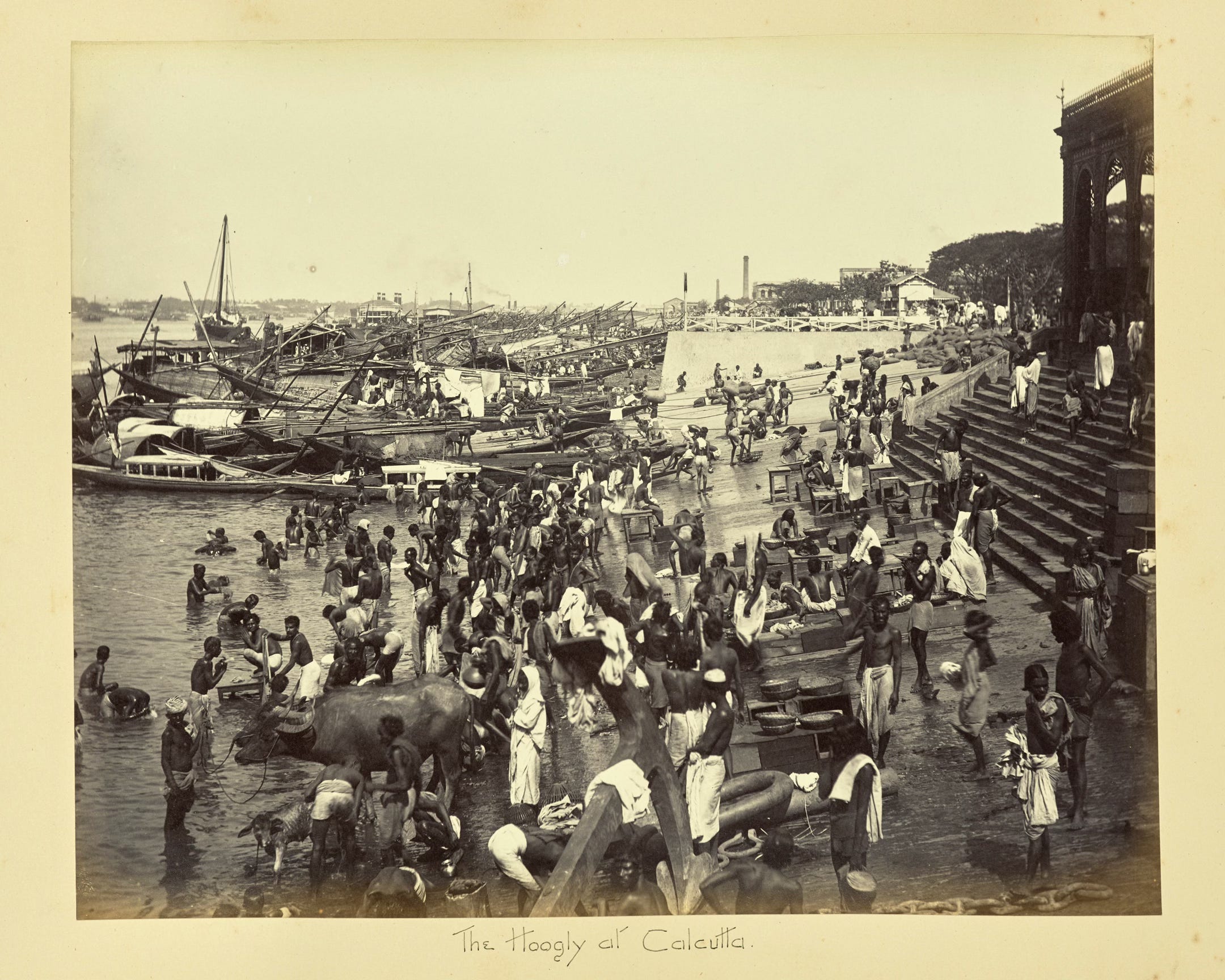
Let’s read that opening paragraph again:
It was early March. The dusty squalls preceding the summer monsoons compelled the city’s residents to occupy the stone ghauts along the edge of the Hoogly, from Garden Reach north to Baugbazar. A melting pot of Mahometans, Moguls, Hindoos, Chinese, Jews, Parsees and Armenians flocked to the stepped river bank to frolic, bathe, or burn their dead; observed from afar by Cashmere-shawled ladies and their attendant ayahs.
Previous versions of this paragraph were far too long, and I spend as much time cutting as I do writing; there should be just enough to give a reader the means to imagine the rest.
Now I’ve described where the story begins, the next goal is introducing the main character. George Frinton is presented as a successful businessman dining with two merchants who are new in town, but this facade will (spectacularly) fall apart by the end of the chapter. This business meeting gives me ample opportunity to expand on real historical details and character through dialogue, moving sentences around until I’m satisfied with the balance of exposition and entertainment value.
This leaves my third goal of foreshadowing a ‘Get Out of Jail Free’ card to play later on, but for now, I’m going to throw Frinton into a less-than-desirable situation as he faces the consequences of his poor decisions in chapter 2…
VETTING –
The Month's Reviews
As you can probably guess, I did plenty of reading for book #2 and not a whole lot for pleasure, so this month’s reviews are a bit thin...
Book Review:
A Foreign Country by Charles Cumming
HarperCollins, 2013
Kell had returned to his bachelor’s bedsit in a near-derelict Fiat Punto driven by a moonlighting Sudanese cab driver who kept a packet of Lockets and a well-thumbed copy of the Koran on the dashboard. Pulling away from the house – which had indeed belonged to a genial, gym-addicted Pole named Zoltan with whom Kell had shared a drunken cab-ride from Hackney – he had recognized the shabby streets of Finsbury Park from a long-ago joint operation with MI5. He tried to remember the exact details of the job: an Irish Republican; a plot to blow up a department store; the convicted man later released under the terms of the Good Friday Agreement. Amelia Levene had been his boss at the time.
Her disappearance was unquestionably the gravest crisis MI6 had faced since the fiasco of WMD. Officers didn’t vanish, simple as that. They didn’t get kidnapped, they didn’t get murdered, they didn’t defect. In particular, they didn’t make a point of going AWOL six weeks before they were due to take over as Chief. If the news of Amelia’s disappearance leaked to the media – Christ, even if it leaked within the walls of Vauxhall Cross – the blowback would be incendiary.
This is my first read by Charles Cumming, and I remember being intrigued by the back cover copy in Waterstones and read the first chapter. I eventually got it on audiobook and listened to the whole thing over a week between chores and work.
A Foreign Country has all the hallmarks of a fun modern spy thriller: from the uncannily competent M16 washout, Thomas Kell and his motley crew of lamplighters and pavement artists, to a medley of locations spanning Tunisia to rural England, Kell’s trail to find an incumbent spymaster gone AWOL uncovers a clever plot to destabilise the British Intelligence community.
As the first book of a long-running series published over a decade ago, there’s plenty more to sink my claws into, and I’ve already begun the next instalment. If high stakes, rapid fire spy stories in the vein of Mick Herron or David Goodman are your cup of tea, then A Foreign Country may just be your next book.
Narrated by Jot Davies.
Podcast Review:
The Lovecraft Investigations by Julian Simpson
Sweet Talk for BBC Radio 4, 2019-
Kennedy Fisher: “Is there someone out there? Is there... I think someone was following me. I can make out some shapes. People moving around the farm. Either I've gone as crazy as everyone else who disappears down these rabbit holes, or there really is something in it?”
Screenwriter Julian Simpson was recently interviewed in an episode of PageOne: The Writer’s Podcast which neatly coincided with me breaking open the Call of Cthulu Starter Set by Chaosium, after playing some games last year with Marco Rinaldi (coincidentally, one of the hosts of the PageOne podcast). I was fascinated by Simpson talking about adapting H.P. Lovecraft’s stories into a podcast-within-a-podcast format, and immediately set upon listening to all four seasons on BBC Sounds (nb: due to licensing issues, season 2 is not on the BBC’s feed, you’ll need to look for it elsewhere…).
Beginning with a modern-day adaption of The Case of Charles Dexter Ward, the listener follows Matthew Heawood and Kennedy Fisher’s podcast investigation into a classic locked room (or rather, locked asylum) mystery, which descends into something far more sinister. The ensemble cast, script and sound design are excellent throughout, and this global conspiracy links everything from UFOs to Nazi occultists and much, much more; from the dreary, fog-shrouded shores of New England to Mosul, Iraq, and further afield.
Praise should be heaped on Simpson and the Sweet Talk production team for seamlessly weaving Lovecraft’s stories together; the overall tone reminds me of a modern-day Indiana Jones and Lara Croft, thrust into an existential horror. It appears Simpson is a big le Carré fan, too, having spotted several references and lines in homage to le Carré’s Cold War (‘somewhere to the right of Genghis Khan’). Coincidentally, Simpson and the cast and production team have also recently crowdfunded season 5 of The Lovecraft Investigations, centred around the life of Aleister Crowley, and will no doubt connect to the previous seasons.
The entire thing is terrific fun, and well worth your time.
You can find the full archive of all my short reviews, here.
POSTINGS –
Elsewhere, On/Off-line
Gruel doesn’t talk like a real person talks, but like a hammy actor doing ‘wise poetess on the mountaintop’. Whilst saying little about itself, it declaims grandly upon the human condition. There is a white-noise generality to its insights, an uncanny vagueness that makes the mind glaze over. It is never funny. There are no surprises, true confessions or controversial moments. It is a description of the human average.
– Will Storr, Scamming Substack?
My resistance to ‘Dystopia’ as a label is that for most (not all, but most) fiction in this genre, while it is generally accepted that the dystopia will hold echoes of the real world, it is framed very much as a fictional futuristic, often apocalyptic world. An omg can you imagine? How terrible that would be. And yet the elements of worldbuilding that make it dystopic are actually real things that exist today in the real world for many people individually and as societies.
– Lorraine Wilson, Dystopia, reality and getting crabbit about labels
Presented to you in the form of unedited screenshots, the following is a ‘conversation’ I had with Chat GPT upon asking whether it could help me choose several of my own essays to link in a query letter I intended to send to an agent.
What ultimately transpired is the closest thing to a personal episode of Black Mirror I hope to experience in this lifetime.
– Amanda Guinzburg, Diabolous Ex Machina
INTERCEPT –
Quote of the Month
“I walk twenty, thirty, sometimes forty or more kilometers until my feet feel wonky, hot in spots, minced. Until I’m sure I can’t take another step. And then do the same thing again the next day. And then the next… I dictate my observations and thoughts into a recorder, talking to myself like that bag lady who roamed our suburban sidewalks, who walked past our homes. (Why didn’t any of us try to help her?) Each night, I spend three or four or five hours collating the photographs, compiling my notes, doing laundry, chatting with inn owners, creating an archive. Where does it all go? Here, you’re holding it… This is a walk, yes, but also a series of relationships with people and objects: purpose wrought from a slideshow of faces, old tales, new tales, histories, fields, forest climbs, pachinko parlors, and pine trees.”
– Craig Mod, Things Become Other Things: A Walking Memoir (Function, 2025)
Many thanks for reading. The Dispatch is a monthly roundup by British speculative fiction writer, Jordan Acosta. News, short reviews and more, published every first Thursday.
You can subscribe at jordanacosta.co, and read previous editions, here.
Glossary of Meteorology. “AMS Glossary.” Kal Baisakhi.
Daniell, Thomas, et al. The Old Fort Ghauht from the Views of Calcutta. 1787.
British Library. Plan of Calcutta, 1854. Survey of India, 1854.
Blackie, Walker Graham, editor. The Imperial Gazetteer: A General Dictionary of Geography, Physical, Political, Statistical and Descriptive. Blackie and Son, 1855, pp. 556–62.
Contributors to Wikimedia projects. “Nimtala Crematorium.” Wikipedia.
Hickey, William. Memoirs: Of William Hickey. Edited by Peter Quennell. Century Publishing Co., 1960.
“Spence’s Hotel.” Wikipedia.
I made up the Bengal Herald, but the news items described in the chapter are adapted from a real edition of The Bombay Gazette, published on the same day of my opening chapter in 1854.
Goodman, Ruth. How to Be a Victorian. Penguin UK, 2013.
Popularised by London barber, Alexander Rowland. By the Crimean War, the year in which this story is set, facial hair was fashionable amongst men. Contributors to Wikimedia projects. “Macassar Oil.” Wikipedia.


